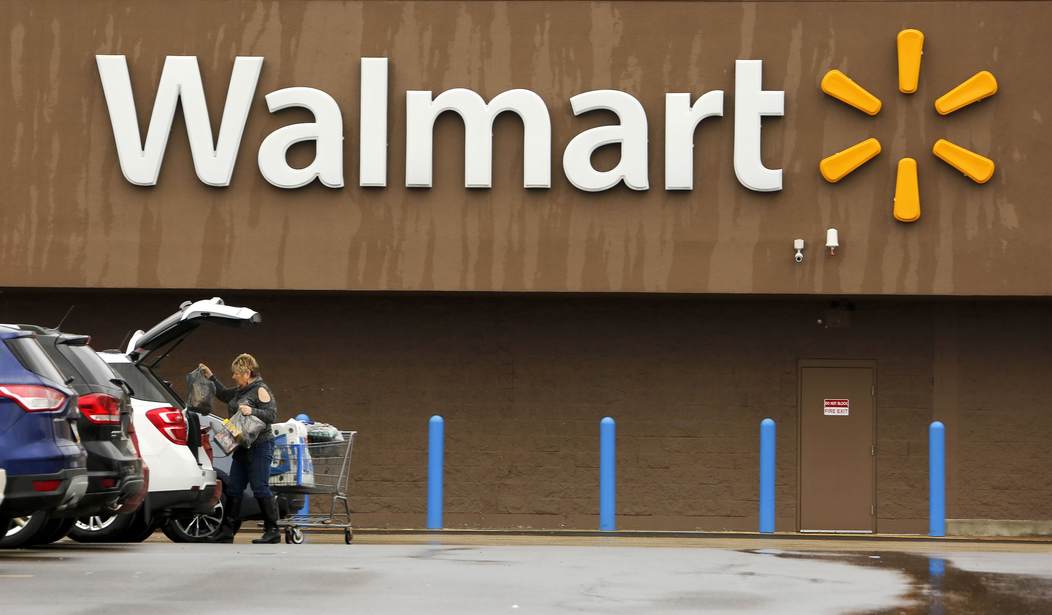Some groups like to play both sides of an argument in Washington yet suffer no consequences for political hypocrisy. It is part of the game that insiders play because they believe they can get away with it.
Trade associations bash their opposition’s China ties when it serves their purposes but cry foul when policymakers crack down on China with tariffs or other trade restrictions that affect their members’ business interests. A recent example of this naked hypocrisy has centered on a credit card bill that would pad retailers’ bottom line and result in a significant loss for consumers if it passes.
The National Retail Federation (NRF) as a case study in transitory politics. The Merchants Payments Coalition (MPC), a group funded by the NRF and its members, ran ads last month claiming that the so-called Credit Card Competition Act (CCCA), legislation that sets price controls on credit card interchange fees for merchants, will block something called “China Union Pay,” a Chinese payment network. This is not true, and the credit card bill is cronyism that will benefit large corporations to the detriment of consumers.
The companies that fund the MPC, like Walmart and 7-11, proudly accept China Union pay. According to an MPC press release, “Currently, there is no law that prevents Visa, Mastercard, or any of the banks that issue credit cards under their brands from working with China UnionPay. But the CCCA would take the first step by prohibiting China UnionPay or any other foreign state owned or sponsored payment network from being used on U.S. credit cards. The prohibition would keep banks from exposing Americans’ sensitive financial data to foreign governments by routing U.S. credit card transactions over foreign networks.” The real reason these companies support the credit card bill, is because they want a competitive advantage for Walmart and Target versus their small business competition. Support or the bill has nothing to do with China.
Recommended
If Walmart cared so much about being anti-China, then why do they import so much from the country? The Economic Policy Institute (EPI) documented that Walmart’s China imports “
led to the loss of over 400,000 jobs in the United States between 2001 and 2013.” The report indicated that Walmart accounted for a staggering 15% of the growth in the U.S. goods trade deficit with China during that period. If the company cared so much about promoting government policies that stop China from using domestic financial institutions to pay for goods, it would not rely so heavily on China for goods to sell. The hypocrisy is gross and obvious, and to paraphrase the late Norm MacDonald, it’s not the worst part. The worst part is the hundreds of thousands of lost American caused by Walmart’s Chinese imports.
Furthermore, the NRF led the fight against President Donald Trump’s China tariffs. They recently expressed disappointment that China tariffs will continue. The China UnionPay controversy is one that is being used as a Trojan Horse for the NRF to push a credit card bill that will hurt consumers. The bill is misnamed the “Credit Card Competition Act,” when it should be renamed known as an anti-competition act, because government power is being used to tip the scale to the benefit of powerful special interests.
This month, it was reported that the NRF rejected the membership of the global company Shein. CNBC reported on May 13, 2024, “Shein, which filed to go public in the U.S. late last year, has tried to become a member of the retail industry’s largest and most powerful trade association but has been repeatedly rejected, people familiar with the matter told CNBC.” The story noted that companies like Shein typically get membership as long as they’re involved in retailing and pay the required dues. However, competition from Shein has pressured NRF leaders like Walmart and Target to lower prices, so that may explain why they have boxed out Shein from membership to hurt the competition. Shein was rejected for an obvious reason, even though they met every criteria to be a member of the NRF - like the NRF's credit card bill, this isn't about China; it's about competitive advantages for the NRF's largest members like Walmart and Target.
Cronyism and hypocrisy is alive and well in the D.C. swamp and one needs to look no further than the National Retail Federation for an example of cronyism run amuck.
























Join the conversation as a VIP Member